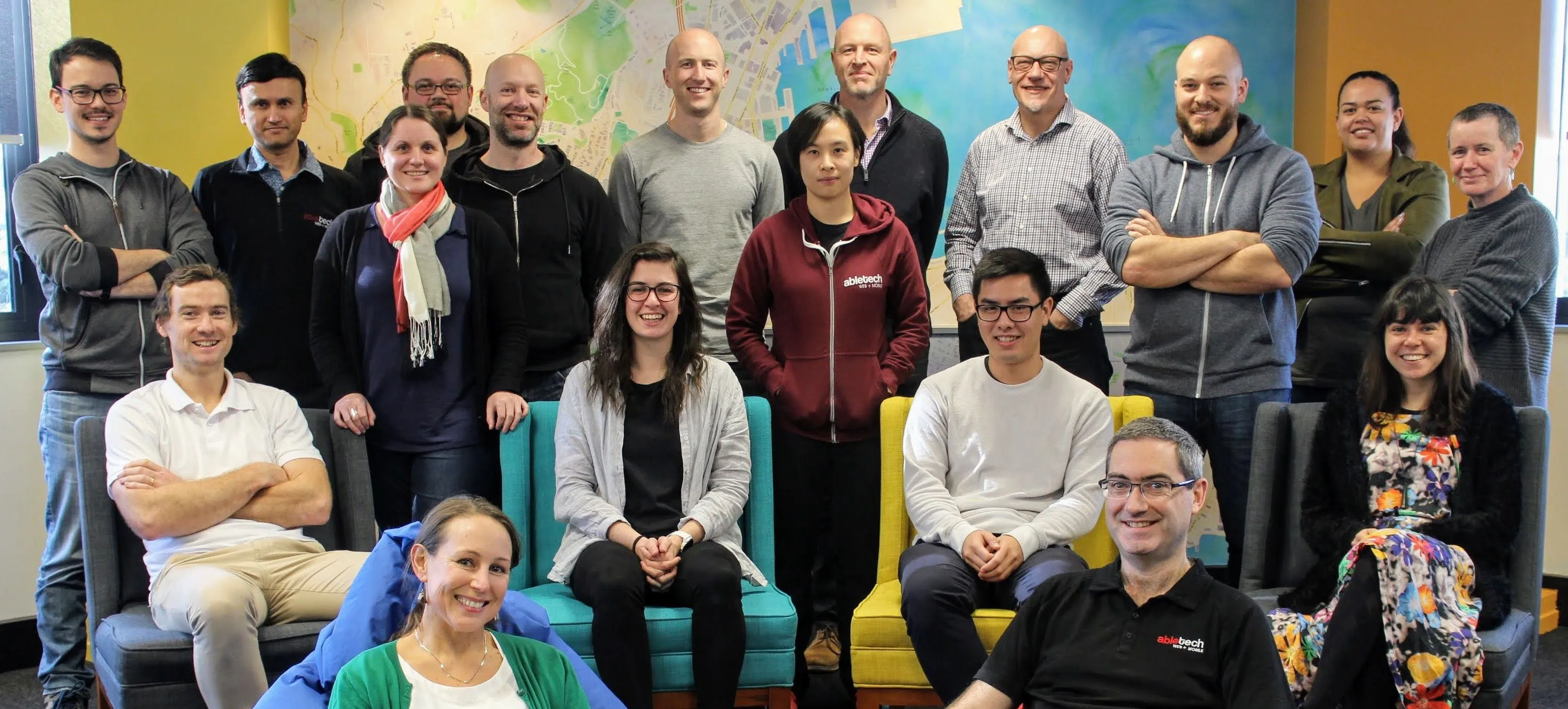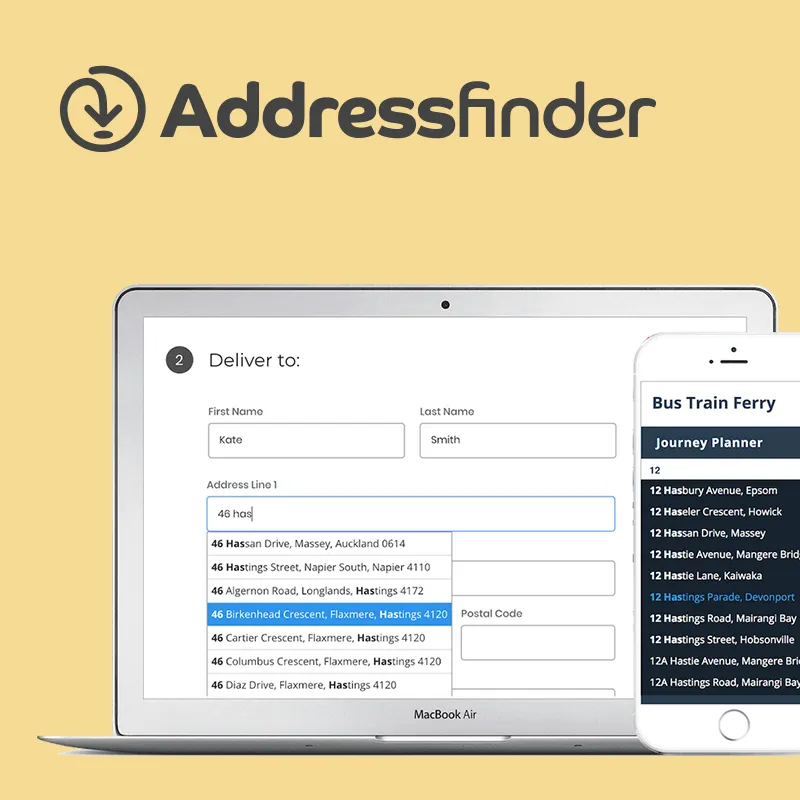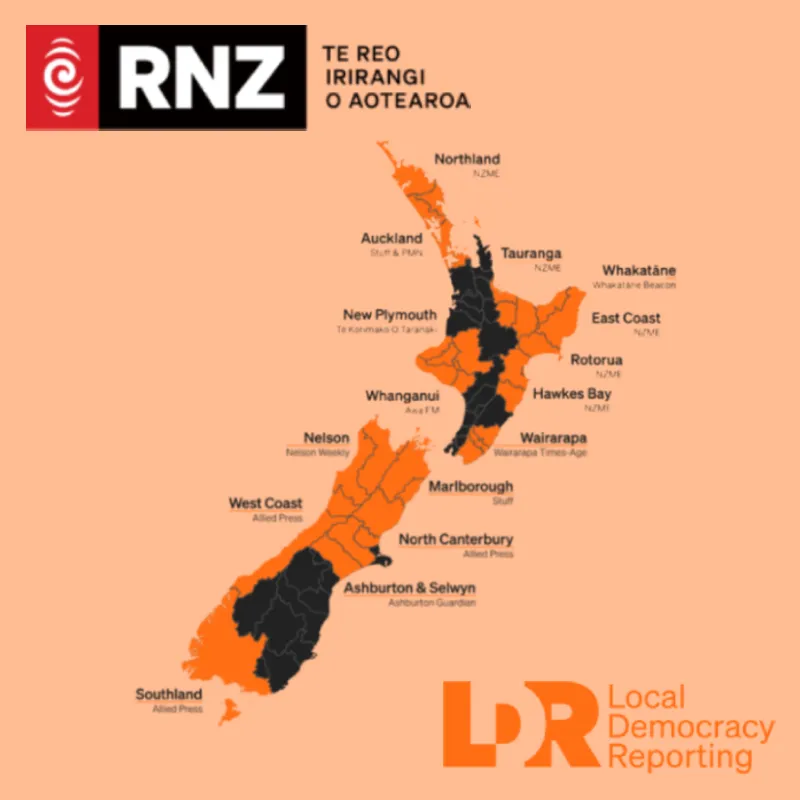Saving lives every day

Open-source technology pinpoints public defibrillators
When the Abletech team learned about one man’s mission to put defibrillator locations online, they offered to design the website and app for free. Today more than 12,000 defibrillator locations can be accessed in seconds – enabling professionals and everyday Kiwis to give vital and urgent support to people in cardiac arrest.
Back in 2010, Gareth Jenkin came up with a small idea that was destined to have an enormous impact.
As a paramedic and resuscitation trainer, Gareth realised that while he was teaching thousands of people to save lives using AEDs (automated external defibrillators), he couldn’t tell them where to find one. Instead, AEDs were sitting idle as people suffering cardiac arrest died nearby – a truly tragic situation given that an AED can increase a person’s chance of survival by up to 80% if used immediately.
Gareth knew the problem could be fixed by putting the locations online via a searchable database, but he lacked the money or technical know-how to make it happen. But help was on the way: Abletech heard about his dilemma via an article in the New Zealand Listener, and offer to help him create and manage an app and website for free.
Transforming an idea to reality
Abletech and Gareth worked closely together to define and implement the app and website using freely available open-source technology. This included customising the OpenStreetMap to remove distracting map elements (such as bus stops and advertising), smooth the ‘pan’ and ‘zoom’ options and reduce load times for mobile users.
The result is simple and smart. The new ‘AED Locations’ service:
- uses GPS to locate users and displays their 10 nearest AEDs. The users don’t have to type in their addresses
- provides driving directions (useful for people in unfamiliar areas)
- enables users to search by address, suburb or a point of interest
- provides phone numbers for AED locations, along with opening hours
- employs the graphics capability on users’ devices to zoom in and out smoothly.
The service is available to everyone for free, while New Zealand Police officers have the app on all their devices and ambulance services use it to direct bystanders to AEDs. And of course paramedic and resuscitation trainers like Gareth can finally ensure their trainees have all the tools they need to treat critically ill people in those crucial minutes before ambulances arrive.

Saving lives just in time
With AED Locations now live, Gareth is in charge of keeping it current. He uses MapMySites (an Abletech Geodatabase) to update the locations on the website, and this automatically updates the iPhone and Android apps. “It’s so easy,” he says. “When someone wants to register an AED on the website I now get a pre-populated, automated message that takes seconds or minutes to process. It’s saving me hundreds of keystrokes a day!”
Abletech’s Managing Director, Carl Penwarden, says the success of AED Locations is largely due to Gareth’s determination and data-maintenance skills. “As well as doing all the maintenance work, he tirelessly promotes the app and website and encourages owners to list their AED locations,” he says. “He also sends stickers to people who register their AEDs to increase their visibility and promote the website, and uses Facebook to list media feeds and research updates.”
Abletech is proud to support AED Locations. As Gareth says, it’s like a lighthouse: “Nobody pays for it, but it keeps people safer.”
The Abletech way
- Proposed a digital solution for mobile apps using our new geo cms tool - mapmysites
- Built and delivered two native mobile applications
Technologies used in the solution
- OpenStreetMap with customised styles
- Address autocomplete with AddressFinder
- Server side clustering
- Reverse geocoding
- Routing API
- Vector tiles
- Mapbox platform
- Responsive web app
- Native iOS and Android Apps
- Deployed to AWS S3/Cloudfront
- Ruby on Rails
- PostGIS
More from Abletech

Keen to know more?
Get in touch today for an obligation free chat!

